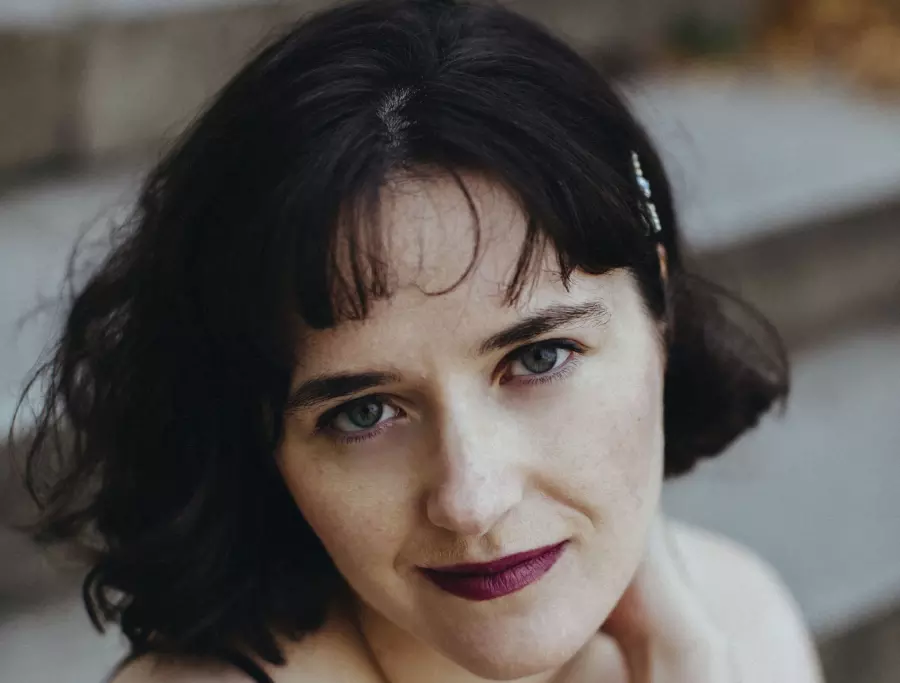
Avery Morris je houslistka a doktorandka na Stony Brook University. V letošním roce stráví devět měsíců na Hudební a taneční fakultě (HAMU) Akademie múzických umění v Praze jako stipendistka Fulbrightova stipendia výzkumem ztracených děl Gideona Kleina a odkazu české hudební moderny.
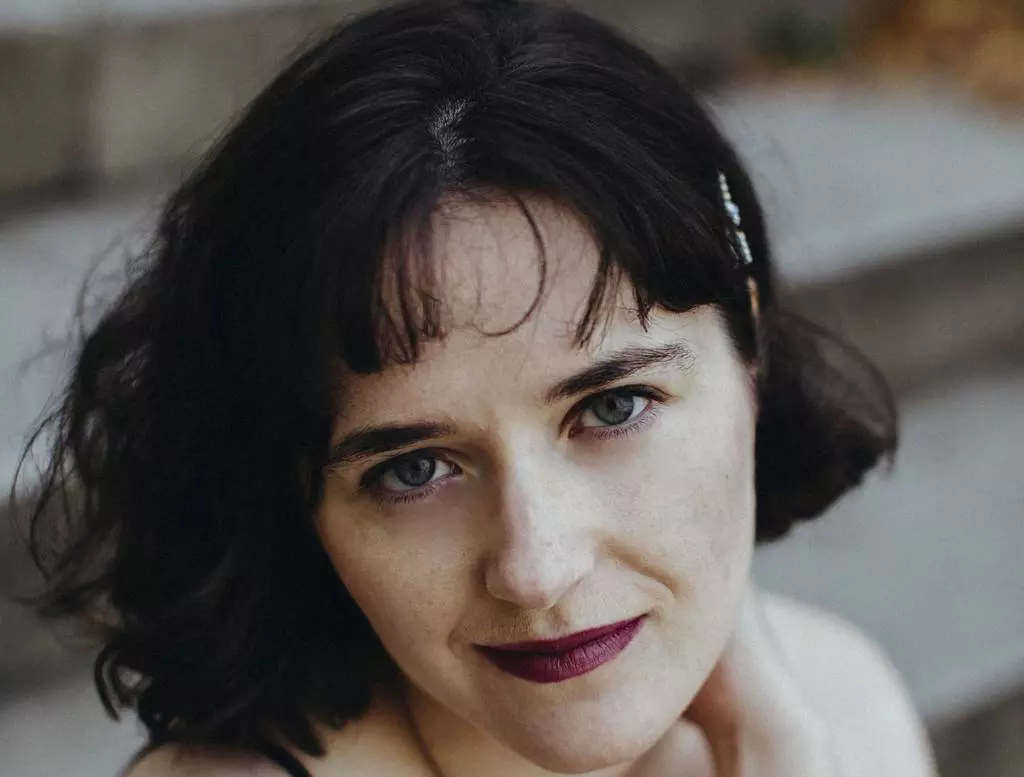
Avery has a special passion for the music of this Czech composer Gideon Klein, who died at the age of 26 in Fürstengrube, a subcamp of Auschwitz after his internment in Terezín. Avery discovered Klein by chance during the pandemic, when looking for music to play together with her twin sister. She immediately got hooked, and started to explore Klein's music, as well as his destiny. Klein experimented with genres ranging from jazz and blues to serialism and microtonal music – a style later labeled by the Nazis as "degenerate music." Avery's curiosity grew more, so applying for a Fulbright Student grant to the Czech Republic was a logical next step. Reflecting on the first half of her stay, Avery shares that: "It’s so rare that musicians get the chance to dive this deep into the pieces they perform and composers they study. To not only see the composers' manuscripts for instance, but to walk on the very cobblestones they did, to taste the "svíčková," to hear the bell towers ring and be immersed in the Czech language."
What was her experience?
I was struck by an image I saw recently of Gideon Klein walking with a friend along the Legion Bridge in front of the National Theatre in Prague, on the same cobblestones I’ve walked on countless times. Not too far away from the bridge is Dvořák Hall, where Klein performed as a pianist while studying at the Prague Conservatory, as well as his family’s home on Rašínovo nábřeží. A short walk from my current apartment is the very flat Klein took piano lessons in as a young boy. The immaculately preserved city of Prague, which I am continuously in awe of, remains a type of musical time capsule into the pre-WWII, rich (yet much too short) musical life of Gideon Klein whose works are the subject of my Fulbright research.
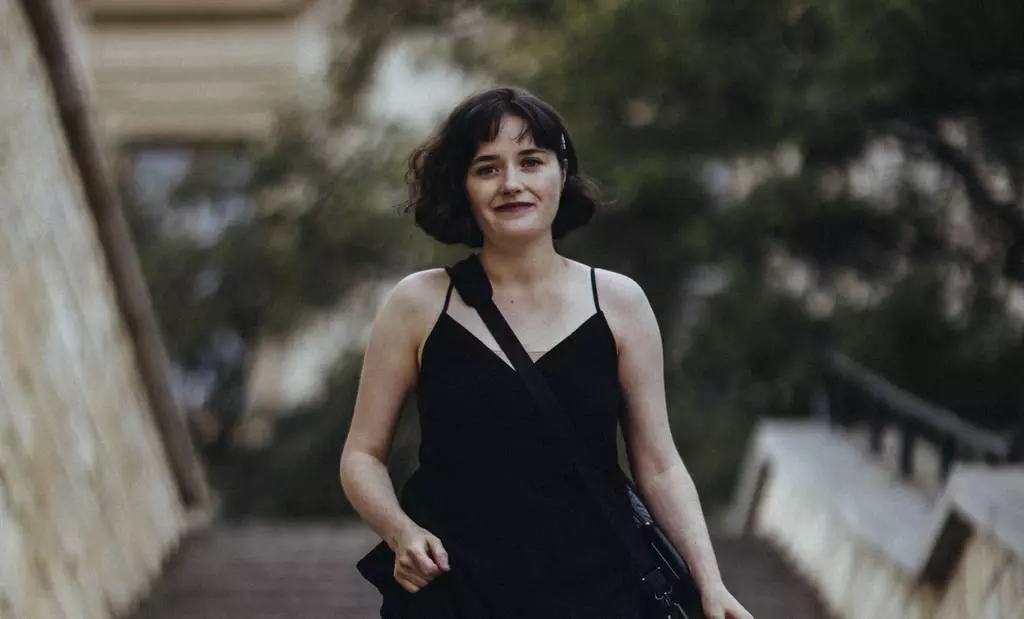
Avery walks in Prague, September 2023. The photo and the profile photo were taken by Marie Hejl Brousilová.
At the start of the pandemic a simple online search of violin/viola duets to play with my sister, led to my initial discovery of Czech Modernist composer Gideon Klein (1919-45) and his music. A current doctoral candidate in violin performance, I was particularly struck by his 1939-40 duo composed using quarter tones, a type of microtonal music in which a composer writes using pitches in-between standard chromatic notes – and this became the topic of a lecture recital I gave at my university. This technique which he learned from composer Alois Hába was an example of what the Nazis considered “degenerate music.” Prior to his deportation to Terezín when he was studying in Prague, Klein also experimented with genres ranging from jazz and blues to piano concerti, harpsichord pieces, and serialism.
However, today Klein is mostly known for his String Trio (and Piano Sonata) written in Terezín and very few musicians are familiar with Klein’s history of rich experimental music. The primary reason for this is clear: unlike Klein’s Terezín works, this music was lost for roughly 50 years. It was found in a suitcase in the attic of a house in Prague in the 1990s. Some of these works exist only in manuscript; others only in sketches. Currently housed at the Jewish Museum in Prague, many of these pieces have never been transcribed, published or even performed.
For my Fulbright research, I have been working to transcribe Klein’s lost works and sketches; analyzing, researching and performing them at locations of significance to Klein through the support of my affiliate the Academy of Performing Arts in Prague (HAMU) and my advisor Iva Oplištilová. My project aims to explore what might have been by sharing these works with the city in which they were composed over 80 years ago, as many were never performed during Klein’s lifetime and still haven’t been performed to this day.
I’ve been fortunate enough to have performed some of Klein’s sketches as well as complete works during my time so far in Prague. Some performances include: a house concert last November (just across the street from Klein’s very apartment!) with cellist (and Fulbright alum) Tomáš Jamník and pianist Ivo Kahánek, accompanied by a discussion led by recent Klein biographer, David Fligg. Other concerts included a November 2023 performance at the United States Ambassador’s residence in Prague for Ambassador Bijan Sabet and embassy staff. Upcoming performances include a concert featuring Klein’s quarter tone works with violist Eva Krestová (alongside the premiere of a new composition by Fulbright grantee Andrew Harlan!) at Castle Niměřice and Atrium Žižkov, and a house concert of Klein’s vocal works and sketches to be held this spring.
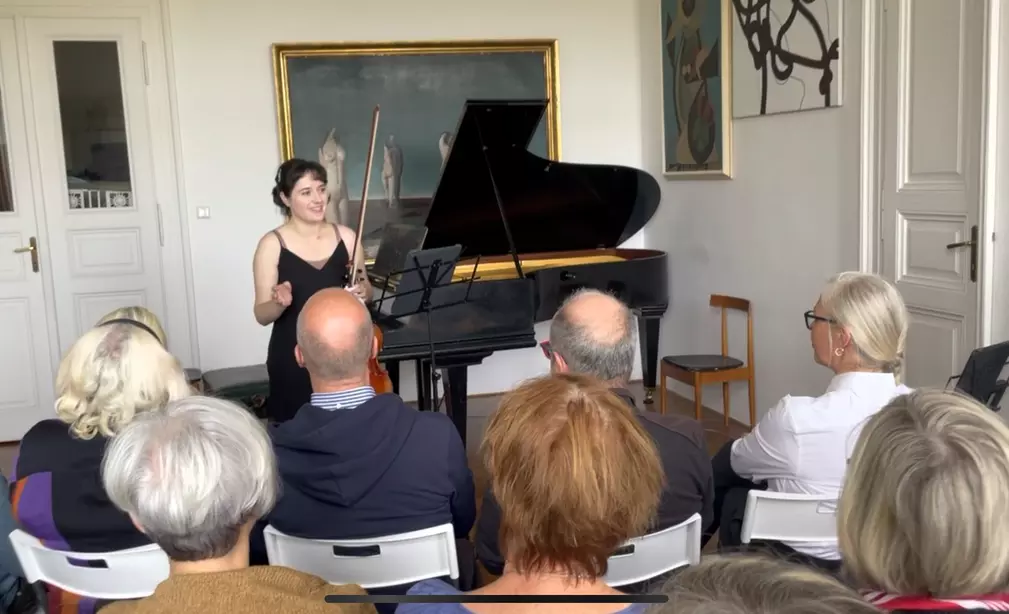
Avery Morris speak about her transcription of Klein's solo violin work before performing it for likely the first time in Prague, Fall 2023.
Since scholarship and performance tradition of Klein’s pre-Terezín works is relatively thin, I have been able to explore different settings for programming his music. At the start of the war when all Czech universities were shut down, Klein and his sister Lisa would perform in what were considered “illegal” house concerts. Artists, writers and intellectuals gathered at these – and Klein performed under the pseudonym Karel Vránek. It has been therefore important to me that during my time in Prague, my performances are not held only in formal concert halls but also in homes, surrounded by fellow musicians and enthusiasts.
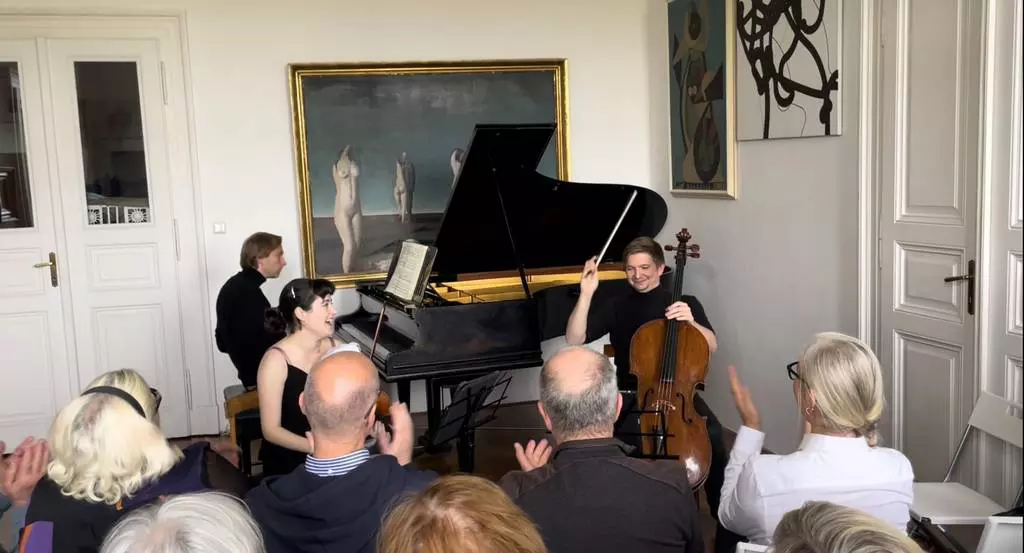
Avery Morris (violin), Tomáš Jamník (cello), Ivo Kahánek (piano) performing for biographer Dr. David Fligg, and others at a house concert across from Klein's very apartment building, Fall 2023, Prague.
In addition to my performances, I have been working on drafting critical reports for my transcriptions, as well as documenting my analyses and observations of Klein’s pre-Terezín works and sketches.
I feel so grateful for the support I’ve received to pursue a project that I have been so passionate about for a while now. It’s so rare that musicians get the chance to dive this deep into the pieces they perform and composers they study. To not only see the composers' manuscripts for instance, but to walk on the very cobblestones they did, to taste the "svíčková," to hear the bell towers ring and be immersed in the Czech language. These elements undoubtedly make their way into the rich history of Czech music and performance, and I would truly never be able to find them anywhere else!
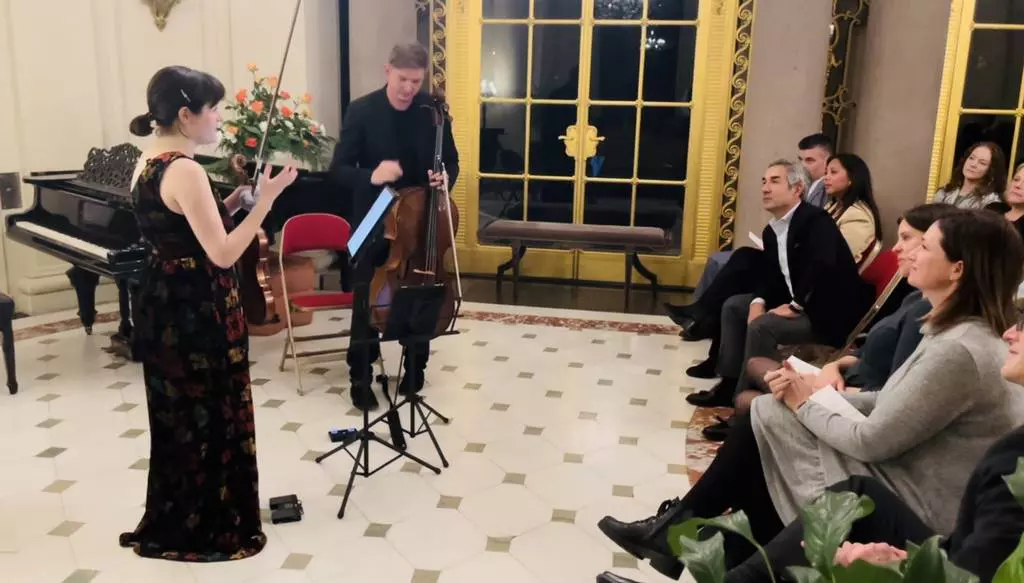
Avery Morris (violin) and Tomáš Jamník (cello) perform Gideon Klein's Duo for Violin and Cello, alongside a piece by Philip Glass for U.S. Ambassador to the Czech Republic Bijan Sabet (pictured in the front row), Fall 2023, Prague.
Zdroj: Komise J. Williama Fulbrighta
Článek vyšel v lednu 2024 na blogu Fulbrightovy komise.
- Autor článku: ne








































